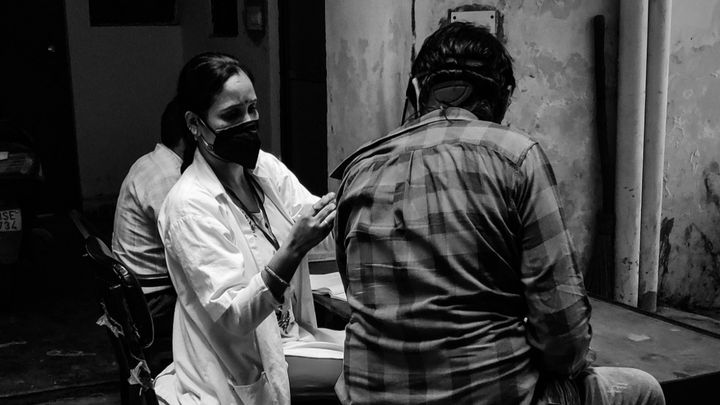
India’s COVID Rapid Response Program
India is going through an unprecedented crisis due to the second wave of Covid.
In this pandemic crisis, ICDR and its associates provided immediate and emergency humanitarian support to communities through Dalit-led organizations in India. We, at ICDR International, are fully committed to supporting the marginalized groups and continuing to help those impacted by COVID-19.
Through our passion to achieve a common goal, we aim to reach out to the underprivileged and marginalized populations who are in dire need of help. We seek your help to bolster up our efforts to support the neediest.
The money raised through this effort will go to supporting NGOs and organizations serving the most vulnerable citizens. This unofficial developmental aid must be given to help India get back on its feet.
ICDR and COVID-19 Related Programs:
ICDR, in collaboration with its local partners in South Asia, has been actively working on humanitarian efforts to respond to the COVID-19 crisis. ICDR is leading its efforts to enforce inclusive and non-discriminatory laws during the relief distribution and management procedures by the government entities and international development agencies related to the COVID-19 crisis in South Asia. ICDR has also launched several emergency relief support and advocacy programs in Nepal, India, and other parts of South Asia.
ICDR International, through its COVID Rapid Response Program (CRRP), has provided financial relief and medical equipment such as Masks, PPE Kits, and transportation for covid patients. Medical facilities are overwhelmed and there has been a shortage of oxygen, hospital beds, and medical care. There are urgent calls for more beds, medicines, oxygen, and covid prevention kits for people. We are doing our best to help with the available resources and funds.
More work is planned by ICDR International in the future to ensure we continue in our mission to fight against any form of discrimination and injustice in Covid relief efforts.
Increased Double Risks for Minorities and Underprivileged Populations from COVID-19 and Poverty:
Recent data shows that underprivileged populations have been significantly impacted by the COVID-19 crisis. The COVID-19 outbreak presents potential health and financial challenges for underprivileged populations, which may disproportionately affect communities of Dalits, Adivasi, ethnic minorities, and migrants or other marginalized populations and compound underlying health and economic disparities. Our initial data on underlying health and financial conditions, as well as social and economic factors by caste, race, and ethnicity, provide insight into how the health and financial impacts of COVID-19 and poverty may vary across underprivileged groups:
· Communities of underprivileged populations are at increased risk for experiencing serious illness if they become infected with coronavirus due to higher rates of underlying health conditions;
· Communities of underprivileged populations face increased challenges accessing COVID-19-related testing and treatment because of lack of healthcare access and/or social barriers to accessing healthcare;
· Communities of underprivileged populations face increased social, financial, and health risks associated with COVID-19 and poverty due to economic and social circumstances;
· Women and girls from Dalit, migrant and other minority populations have been facing increasing sexual, domestic, and gender-based violations and growing threats of human trafficking during this COVID19 pandemic crisis and beyond.
Equitable distribution of aid/support to all affected groups:
Another priority is to assure that the COVID-19 pandemic response enforces inclusive and anti-discrimination laws and ensures equal access to the resources needed for recovery, especially for the underprivileged sections of society, such as Dalits, Adivasi, ethnic minorities, and migrants who have historically been exploited and have faced systematic social exclusion, exploitation, and discrimination based on caste, work, and descent. We have recorded discrimination in relief management processes, including in governmental and non-governmental recovery programs after the 2001 and 2015 earthquakes, the 2004 tsunami, and the 2015 floods in South Asia. During the recovery efforts, the needs of Dalits, Adivasis, minorities, and other marginalized communities were ignored, and underprivileged populations faced discrimination in accessing healthcare, relief materials, shelter, financial support, and other forms of post-disaster rehabilitation because of their caste, work or descent.
COVID-19: Impact Tracker by Caste, Work, and Descent:
ICDR in association with various stakeholders is tracking COVID impact by caste, work, and descent. Comprehensive data by caste, work, and descent will be key for understanding the impacts of COVID-19 and poverty across communities on health and economic disparities. Data by caste, work, and descent will also be important for understanding the extent to which there are disparities in access to and receipt of health and economic relief. Together these data can help shape and target response and relief efforts.
*Cover photo courtesy of the Wall Street Journal*